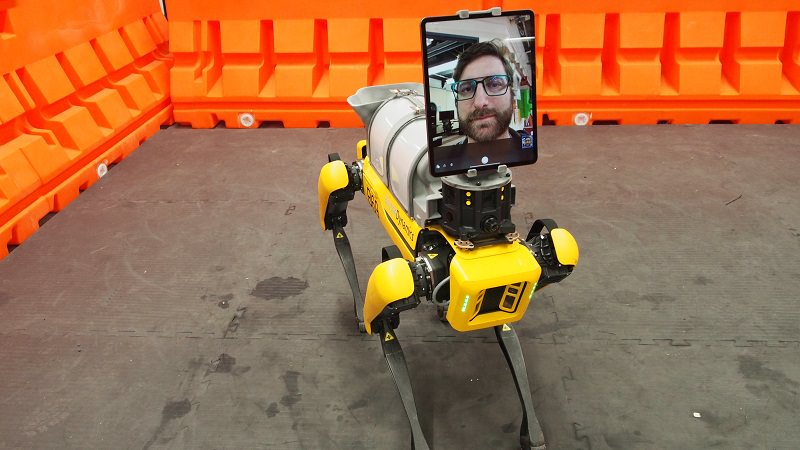Boston Dynamics is known for its autonomous walking robots. Since 2019, the robot dog Spot has also been part of the portfolio. This could turn out to be a small care revolution in the Corona pandemic. But there are also problems that technical assistants bring along.
It’s true: When you see the autonomous robot dog named “Spot” from Boston Dynamics, the demonic dog creatures from the Netflix hit series Stranger Things quickly come to mind.
And that’s not entirely surprising. After all, Spot is designed to find his way around difficult environments on his own and to take on tasks on difficult terrain.
Boston Dynamics itself sees the main areas of application in the construction industry, in the oil and gas industry and for monitoring buildings and public places.
Boston Dynamics sends Spot from the construction site to the hospital
In summary, Spot is suitable for use in hazardous or difficult to access environments.
It is therefore not surprising that Boston Dynamics has now discovered a new field of application for its robot dog in the Corona crisis. Of course we are talking about hospitals, intensive care units and mobile examination tents.
Because unlike doctors and nurses, Spot cannot get infected with the corona virus. This makes him perfect for maintaining communication between sick patients and hospital staff.
Exchange, vital signs and disinfection
To meet these demands, Boston Dynamics has equipped its robot dog with a smartphone including two-way communication. With this feature, Spot can act as a safe intermediary between Covid-19 patients and the treating forces.
But that’s not all. In the next steps, Boston Dynamics plans to have Spot record some vital signs using sensors and cameras. This could soon make it possible to measure body temperature or breathing rate without human assistance.
Finally, the robot dog could also be used as a cleaner. If the device is equipped with disinfectant and a spotlight, Spot could easily disinfect rooms or objects and thus contain the unintentional spread of viruses.
A question and a disadvantage when used with Covid-19 patients
So far, it sounds as if the robot dog from Boston Dynamics is a small wonder weapon for hospitals in the treatment of infectious patients. There are two limitations.
On the one hand, Spot certainly poses a danger in spreading the virus. Although the robot dog cannot infect itself. However, if the technique is not cleaned regularly and thoroughly, the caring dog quickly turns into a walking virus donor.
On the other hand, the interpersonal aspect plays a decisive role, especially in the care of patients. The future will show whether and to what extent a technical keeper can satisfy the needs of the sick.
Feedback from the first field trial in the US state of Massachusetts has been very positive. But just because the Covid-19 patients did not react negatively in this case does not of course rule out such reactions in the future.
Read on: Testing the new smart mirror DIRROR: An oversized tablet with a mirror display










